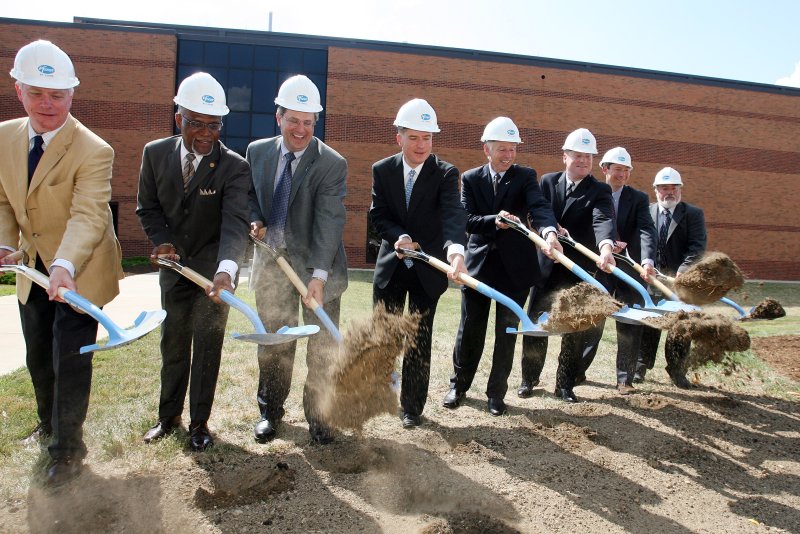A groundbreaking ceremony for a new $50 million Pfizer, Inc facility in Chesterfield, Missouri on August 22, 2007. The company prompted public officials in New London, Conn. to seize private property from citizens in 2001 under SCOTUS' controversial Kelo ruling, then decided to develop elsewhere. (UPI Photo/Bill Greenblatt) |
License Photo
Nine years ago, in its controversial Kelo v. The City of New London ruling, the Supreme Court decided to hand the property rights of seven homeowners in the Fort Trumbull neighborhood of New London, Conn. over to the city, which planned to demolish the homes for the sake of commercial development.
According to a report by Jeff Jacoby for the Boston Globe, the homes belonged to people like “Susette Kelo, a local nurse who bought her little Victorian cottage on the Thames River because she loved its waterfront view; Wilhelmina Dery, who was born in her house on Walbach Street in 1918 and had been living there all her life.”
The Kelo ruling was controversial and precedent-setting because, under eminent domain, the government may seize the property of a private citizen when it’s deemed necessary for public use -- the construction of an airport, freeway, or post office -- and they usually do so politely, giving notice and paying out the appraised value, for example, but in this case the private property was being seized not for necessary public use but for commercial development by pharmaceutical giant Pfizer.
“Pfizer wants a nice place to operate,” a supercilious executive reportedly said in 2001. “We don’t want to be surrounded by tenements.”
But after prompting city officials to pave the way for its new research facility with the promise of tax revenue and new jobs for the city, Pfizer pulled out of New London in 2009, leaving the land undeveloped, the homeowners dispossessed, their homes demolished, the land bulldozed into a vacant lot that still sits empty. After being elected in 2011, New London’s mayor called it “black stain” on the town's reputation in an apology to the homeowners.
But Kelo did prompt a nationwide backlash, prompting more than 40 states to pass legislation specifically designed to prevent the displacement of homeowners for the sake of economic development, with at least seven states banning the practice altogether, The Weekly Standard reports.
“The founders put the takings clause in the Bill of Rights for a reason. The desolation that is Fort Trumbull is a grim reminder that where property rights aren’t secure, neither is freedom -- and without freedom, there is nothing the government can’t destroy,” Jacoby writes.
[Boston Globe]
[Weekly Standard]















